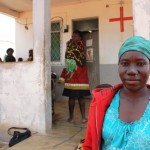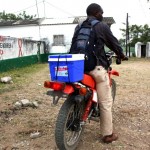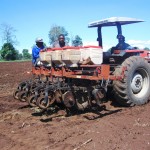
In 2012, the Government of Mozambique launched a tool to better manage customs operations—the Single Electronic Window. Designed to enhance efficiency and transparency of trade across borders, the system improves trade taxation management, enables effective controls, and promises to make it easier to do business in Mozambique.

Access to lifesaving anti-retroviral treatment (ART) for HIV continues to be a major obstacle in Mozambique, where many rural clinics do not offer this service. Patients must travel long distances to health centers offering ART, incurring transportation costs to receive medicine and attend check-up visits. This leads to poor adherence to ART, withdrawal from treatment, and preventable deaths.

As Mozambique grapples with severely poor health services, a change in how funding is disbursed may also substantially change the quality of care.

When Bakir Lozane first worked the land in Alto Molocue in northern Mozambique, he was clearing mines sown over years of civil war. Today, Alto Molocue is home to the 1,250-hectare Lozane Farms, one of the country’s biggest producers of high-quality seeds—particularly soybean seeds

Until recently, outdated Mozambican insolvency laws dating back more than a century made the process to dissolve a business unduly complicated, slow and costly. These factors can impair growth, competitiveness, and the prevention and resolution of financial crises.








Comment
Make a general inquiry or suggest an improvement.